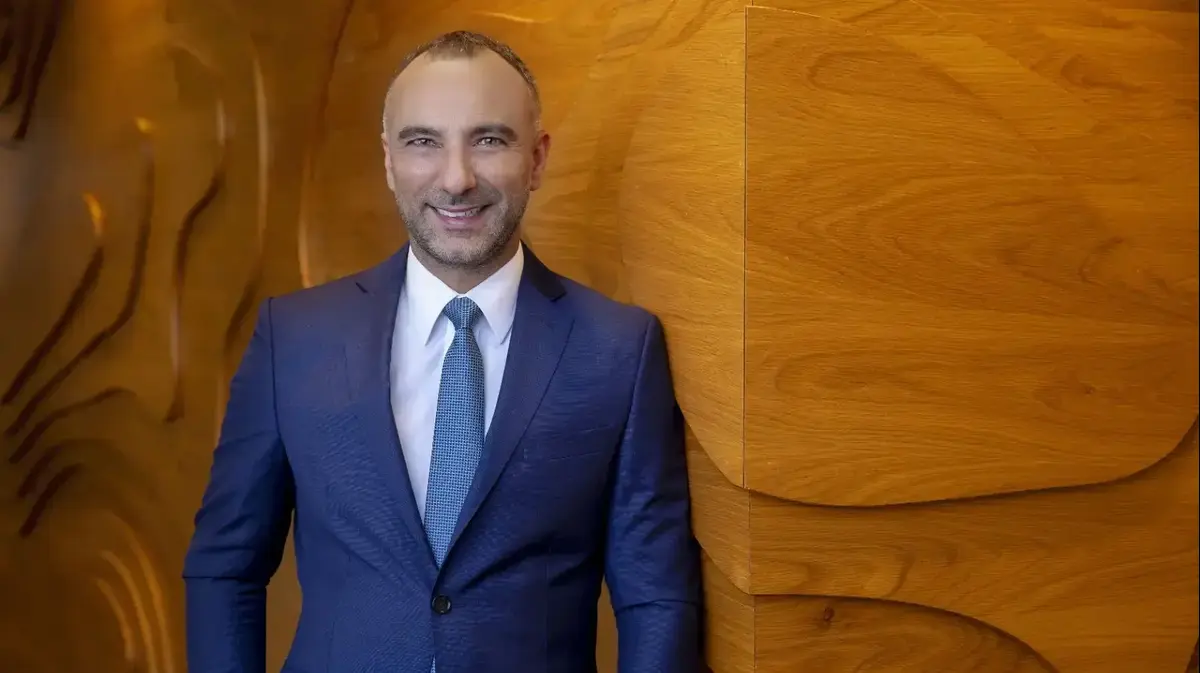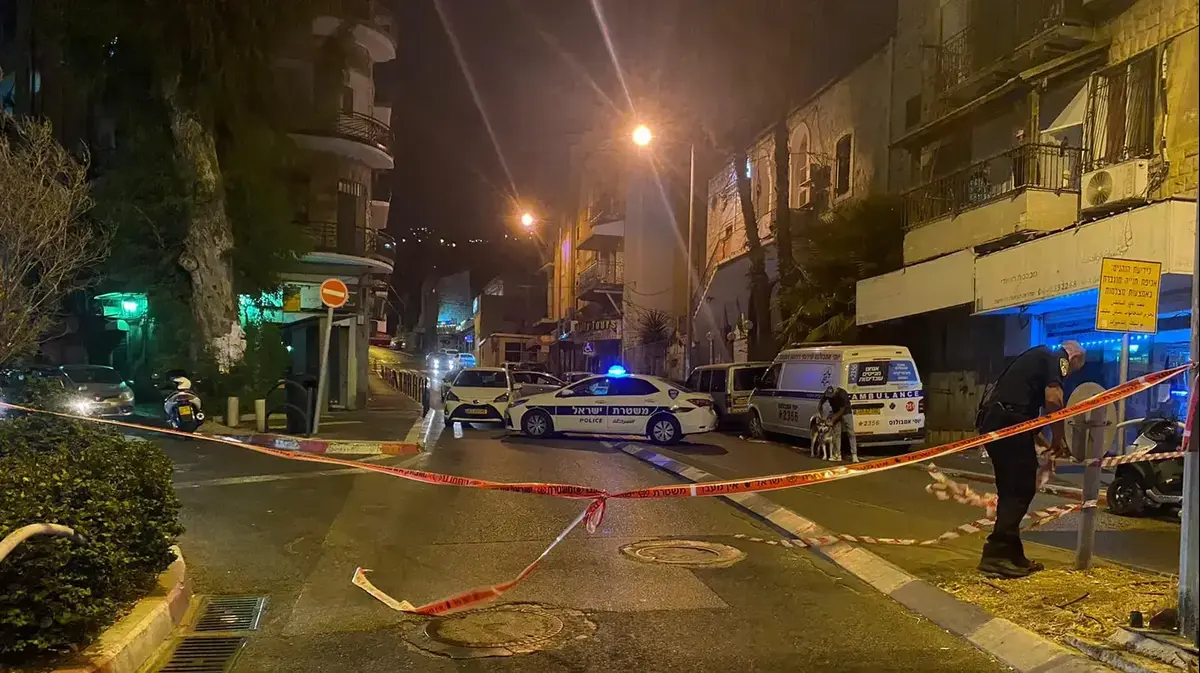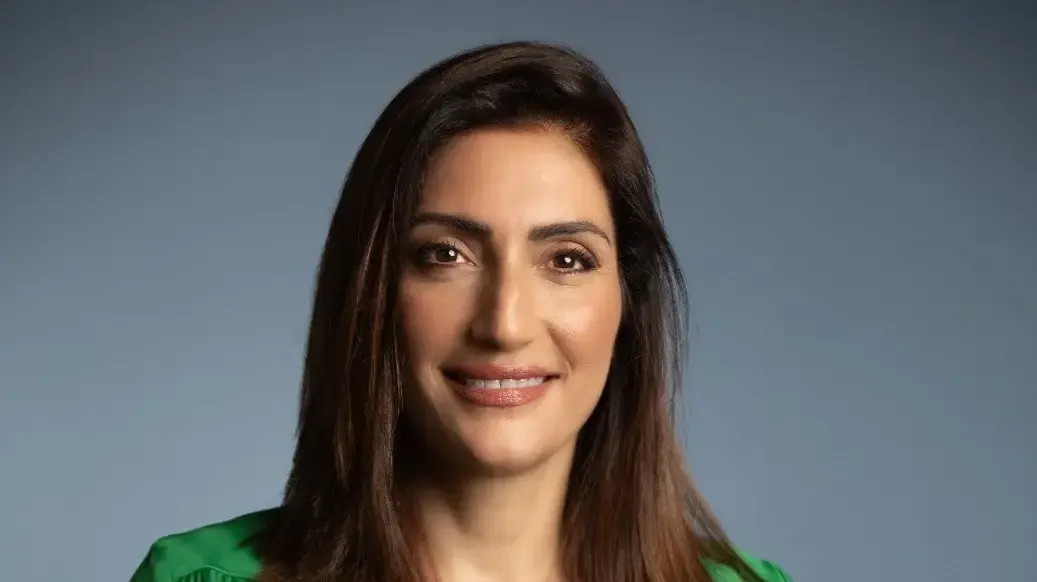Giving gas: Yossi Abu, CEO of "New Med Energy" in a special interview
Natural gas, which the populists preferred to "remain in the ground", has become one of the most sought after commodities in the world and Yossi Abu, one of the most important people in the gas industry in Israel, is barely able to keep up with the flow of requests to purchase from the reservoirs he manages.
Now it's easier for him to talk about the obstacles he overcame along the way, about the wealth fund and renewable energy
Liat Ron
09/22/2022
Thursday, September 22, 2022, 10:57 a.m. Updated: 2:45 p.m.
Share on Facebook
Share on WhatsApp
Share on Twitter
Share by email
Share in general
Comments
Comments
With the owner Yitzhak Tshuva.
Turning Delek Kiduchim into "New Med Energy" (Photo: Shlomi Yosef)
Every end of November, a month before the New Year, Europe begins to decorate.
The Christmas night markets are bustling, strings of lights are strung on lampposts, buildings are lit up in green, red and white, and Santa Claus smiling with his white beard and hugging a happy child, stars on billboards and in the TV background.
But this year Christmas in Europe will look completely different, dark, cold and depressing.
The global energy crisis, which is deepening as the war with Ukraine continues, is already putting Europe in the dark and this is only a prelude to a harsh winter that awaits its inhabitants.
The continent's major cities already went into voluntary darkness a few weeks ago.
Governments prefer to save electricity already, and avoid lighting public buildings, palaces, cathedrals, shopping centers and stores.
In Germany it is forbidden to heat pools and reduce heating, Finland recommends its citizens to shower quickly, and Italy even set maximum and minimum temperatures in air conditioners.
Yossi Abu.
Not forgetting those who preferred the gas to remain in the ground (Photo: Shlomi Yosef)
Yossi Abu, CEO of "New Med Energy" (former "Delek Kedihim"), who has been in the business for many years, knows these gloomy forecasts well and adds to them the fear that many will die from the cold, but also knows that these troubles are already becoming a blessing for the company that he heads it and Yitzhak Tshuva's "Dalek" group, to which she belongs.
After years when the gas companies were considered the public's tyrants, when they signed an agreement to sell gas to the Electric Company at a price considered exorbitant at the time and were accused of paying disproportionate royalties under the auspices of the Shishinsky Committee's gas plan, they became saviors in the last year The people, so Abu, can sit back in peace and pronounce the victory sentence, "I told you so." In a solemn interview with "Walla", he talks about the years when he was the punching bag of the politicians and regulators, the anger he has with the former commissioner of restrictions, David Gila, His answer to all those who persecuted him and marks goals for the future.
More in Walla!
To what extent does employment stability still play a role in the labor market?
In collaboration with Manpower
With an Egyptian colleague at the energy conference in Tel Aviv.
Natural gas also has regional-strategic importance (Photo: NewMed Energy)
be realistic
"The gas discoveries, especially Tamar and Levitan, saved the State of Israel from the worst economic crisis in its history," says Abu, as he sits in the evening in his office, before another meeting that will last into the night.
"Let's take Germany for example. Even before the Russia-Ukraine crisis broke out, it, like many other European countries, set unrealistic goals for the production of renewable energies and the most available energy is gas and coal, and thus gas prices reached four times the average price in Israel.
"We all believe in renewable energies and therefore we also deal with them, but we must be realistic.
Renewable energies depend on the weather.
The climate crisis has a marginal effect on him in this context, because the measurement is multi-year, but the problem is that the energy mix in European countries relies too much on renewables and too little on traditional energies."
The Russia-Ukraine crisis only exacerbated the problematic situation from the beginning.
The decision of the USA and the European Union to impose sanctions on Russia, including the confiscation of Russian oil and gas, sharply increased the prices of all fuels used to produce electricity - oil, natural gas, LPG and coal.
"Russia supplies 40% of the gas to Europe and when the Russians stopped flowing gas, the price per BCM (the unit of measurement of gas per liter) reached 60 dollars, while with us the price remained constant at 4 and a half shekels.
Electricity prices in Europe increased by 500%, Even after the government subsidy. Think of an Israeli family that pays 1,000 shekels for two months and suddenly had to pay 5,000 shekels, or factories that would have incurred huge expenses. In Europe, countries are shutting down entire industries to save electricity, laying off workers and prioritizing so that people don't die abroad.
" Israel has gas, which belongs to the citizens of Israel, so there was no fear of such an economic crisis.
"It is true that the gas belongs to Israel and its citizens, but those who took the risk to look for it, investments of hundreds of millions of dollars and an investment of over ten billion dollars for development, are private investors who did not receive a single shekel from the state. The state created regulatory conditions for its production - take a risk, invest, if you lost You don't get anything from us, but if you succeed, you will pay 50% of the revenue, all without investing a shekel."
Why should the State of Israel invest in exploration if it gives you the gas?
Without it you have no business existence.
"The State of Israel and the entrepreneurs have created a partnership. From day one we pay 30% of the base until the return of the investment, and then the amount increases to 66%. On average, the state receives 50% of the revenue, which is in the top third of government taxation on gas in the world. But we are full of pride and it comes from a place that despite The changes in regulation along the way, which started with Shishinsky with taxation, continued with the export restriction, and then David discovered that he almost destroyed Israel's economy."
Whale rig.
The Commissioner for Antitrust Claimed a Binding Arrangement (Photo: Official Website, Albatross)
not forgetting
In 2012, during his tenure as Antitrust Commissioner (today the Competition Authority), and as part of the discussions to break up the gas monopoly, David Gila determined, subject to a hearing, that there was a binding arrangement in the Leviathan reservoir that would harm competition in the gas market, and requested that the reservoir be taken out of the hands of the "Delek" company. .
After a persistent fight waged by the company against his decision, together with the other partners, "Noble Energy" and "Ratio", and a significant delay in the development of the reservoir, Gila unexpectedly announced his retirement from the position, the binding arrangement was canceled and in its place the state reached a compromise with the partnership.
Although seven years have passed since then, Abu holds a grudge against him.
"Our pride," he says, "that despite the difficulties and changes in regulation that began with Shishinsky and continued with the export restriction, and at his age, which of course disappeared and as mentioned almost destroyed Israel's economy, delayed the development of Leviathan, and after a decade suddenly announced that we are not the owner of Tamar, because we are Seder Koval, We are here. I will not refer to people that history will not remember. We insisted and fought and worked days and nights for the development of Leviathan.
"Our answer to the detractors, to all those who wanted to see the gas remain in the ground, that Israel has become an energy power and we have cheap and available gas, when the world is competing for every molecule of gas natural and coal grain.
In Germany, plants are now being built for liquefied gas to get through the coming winters with very high energy prices and in countries like Lebanon, there is electricity two to three hours a day.
We have become a regional energy anchor, Jordan, Egypt and Israel."
How many requests to buy gas do you reject?
"We are approached from all over the world. In phase one we are producing gas for Israel, Egypt and Jordan, and in the second phase there will be a doubling of the amount with the aim of exporting liquefied gas to Europe and Asia, or by laying an additional pipeline from Israel to Egypt and using the liquefaction facilities that exist there. Another option is to build a gas liquefaction plant on a ship Off the coast of Israel, to flow the gas produced from Whalen to it and from there by ships around the world. The intention is to invest five billion dollars, which will increase our profit and that of the country."
The regulator imposed export restrictions on you.
"To date we have discovered more than 1000 BCM, when the State of Israel needs 13 BCM per year and we already have an amount for the next 30 years, and we know there is more in the ground. In the second stage we will export the liquefied gas to whoever will pay the most for it."
At the moment there is a big shortage of gas, but the situation could turn around, when Russia will return to flowing gas to Europe and the price will drop sharply.
Are you prepared for such a scenario?
"This is our working assumption. It is impossible to establish an infrastructure of such a huge size, without taking into account that it will happen. It is clear that Russian gas will return to the game in six months, a year or five years. Currently the price per unit is 60 dollars, but in a multi-year view in Europe and Asia, The reasonable estimate was that it would stabilize at 12 - 13 dollars per unit of measurement.
The negotiations on the Harish rig are in full swing these days and the tensions between Lebanon and Israel are at their peak.
You sold your holdings to the Greek Energian, which you sued for the balance of the payment that it did not transfer to you according to your claim, and now it is its problem.
"We have discovered the reservoir. I will not enter into the geopolitical debate, because I am petty, but there is no evidence that there is a threat to Israel's sovereignty from a terrorist organization. As long as they abide by international rules and ensure that the interests of the State of Israel are not harmed, an agreement can be reached with Lebanon."
January 2019, former Prime Minister Benjamin Netanyahu and Energy Minister Yuval Steinitz visit the Leviathan rig (Photo: Niv Aharonson)
Much more than gas
Abu, 44, a lawyer by profession, has been identified with Delek for many years.
He studied law at the Hebrew University, interned in the office of Yigal Arnon, served as an advisor to Finance Minister Roni Brown, and in 2009 was appointed Vice President of Trade and Regulation at Delek Energy. Within two years he was appointed to his current position as CEO of Delek Drilling, today New Med Energy", and at the same time he served as CEO of "Avner Neft Exploration" until it was merged into the company.
He was the one who led the fight against the regulators and received quite a bit of criticism over the years. "There was a time when politicians wanted to make political capital on our backs and bury the gas in the ground.
On the other hand, the Israeli government led by Benjamin Netanyahu and thanks to Yuval Steinitz, managed to produce the gas outline.
None of the politicians invested a dollar in gas or took a risk.
When I hear them shout, we developed and we produced, I know that the ones who developed and produced are the private investors, not them."
"The wealth fund is only part of what we pay to the state, these are only the surplus profits and it already has 10 billion shekels. Just this year we transferred two billion shekels. On the one hand, people want low gas prices here, between six and four and a half dollars per unit of measurement, and on the other hand they We rely on high forecasts that cannot be realized. We also have to take into account the delay in the development of the whale because of David Gila, who delayed the production by a good few years."
Following the global energy crisis, perhaps we should save more gas for the State of Israel and only then start exporting?
"Our total export contracts today stand at 120 BCM, out of the 500 BCM we are allowed to export. In my opinion, the Israeli government was too aggressive when it demanded that we reserve gas for the next 30 years. What's more, we know that the current crisis will not last and it is impossible to manage an economy based on one crisis."
Delek Group, your parent group, was on the verge of insolvency and managed to recover phenomenally.
How worried were you?
"My job is to be concerned, that's what I'm paid for. When Delek Drilling started looking in 2008, we enjoyed the support of the Delek Group and during the Corona crisis, when we became its anchor, it was a privilege for us. We led a debt raising of two and a half billion dollars based on the Whale drilling, to refinance existing debt and this had a good effect on the group. One of the most important decisions we made in the current crisis is to raise debt at a fixed interest rate, with the rationale that the interest rate is low because of the crisis and will rise at some point, so we are not exposed to the increase in interest rates."
Even after 13 years at Delek, Yossi Abu has no intention of leaving and is now focusing on the development of the Aphrodite reservoir in preparation for the start of drilling in the first half of 2023, and apart from that he is developing independently within the group.
"I collaborated with the company 'Enlight' and 'New Med Energy' for the development of renewable energies in the Arab world, among other things in establishing solar projects and wind energy projects in North Africa and the Middle East.
I want to maximize my potential and besides gas, I strongly believe in renewable energies.
Just think of the environmental disaster that will be here this year due to the return to the use of wood for heating in Europe in the winter."
Of money
Tags
Yossi Abu
Yitzchak Tshuva
The gas outline
fuel













